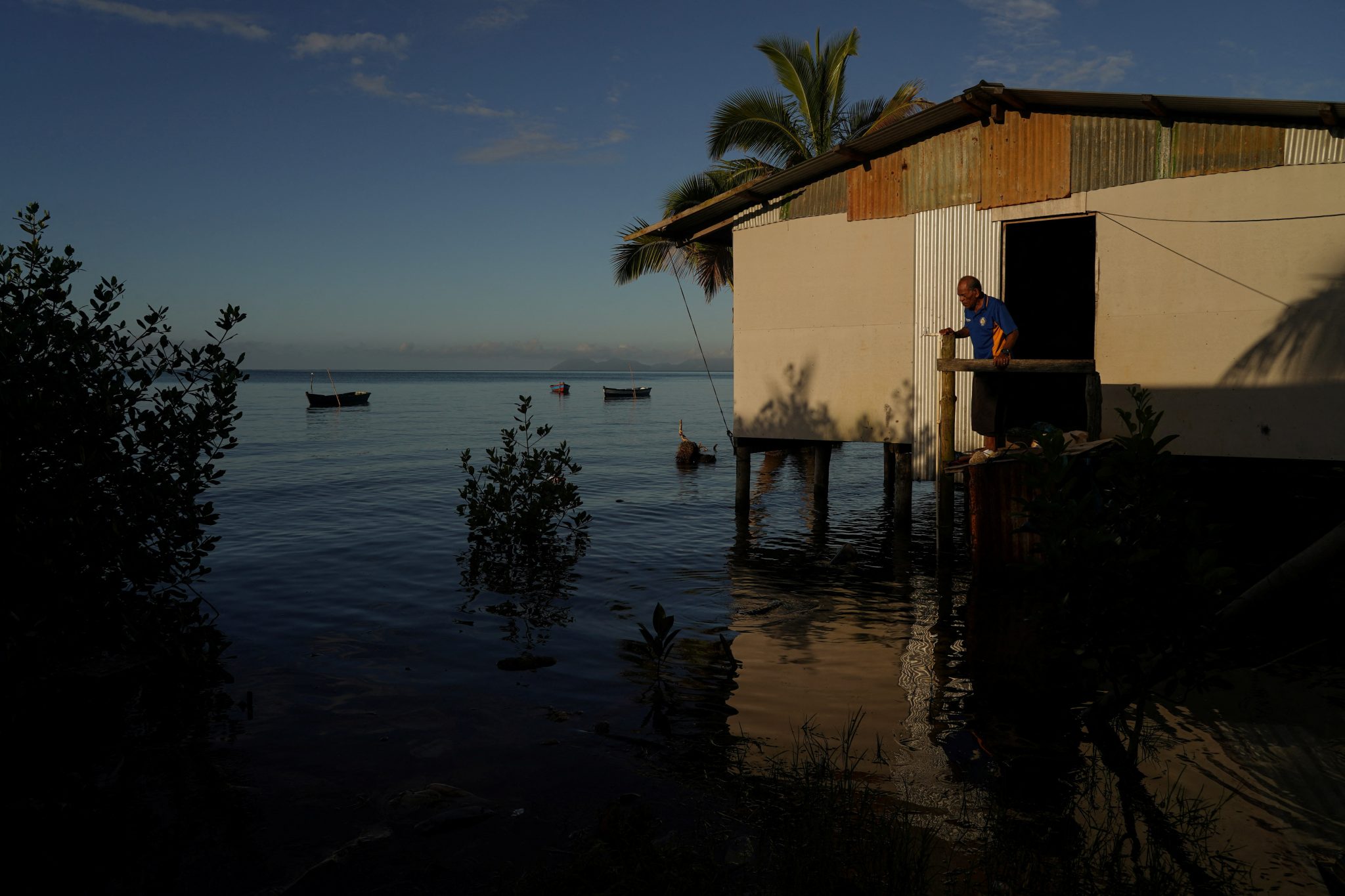By Colette Mortreux, University of Melbourne
There has been much discussion about the impacts of climate change on migration, with calls that the world is entering an ‘era of mass migration’ and ‘unimaginable crisis’. Many communities in the Pacific are increasingly feeling the pressure of climate change including on livelihoods, food security and health. But the impact on migration is less clear.
The Pacific is a diverse region with diverse needs. Not all islands are low-lying, and climate sensitivities and capacities are diverse. Governments need to act quickly, yet they need to do so in ways that engage meaningfully with those who need support, providing a solid evidence base for their decision-making.
It is difficult for researchers to establish a direct relationship between climate change and migration as the decision to migrate is often multicausal, with migrants tending to describe their motivation as related to economic or educational opportunities, even when they experienced environmental stress in their place of origin. In the Pacific, this is likely even harder to determine given that migration is deeply integrated in social and economic life. Despite this complexity, research provides several key insights to shape policy.
Climate change is showing early signs of influence on mobility decisions, particularly in low-lying islands. According to the Pacific Climate Change and Migration Project, 9 per cent of migration from Tuvalu (both domestic and international) between 2005–15 was triggered by environmental hazards associated with climate change. In Kiribati, the numbers were slightly higher with 14 per cent of migration attributed to environmental change over the same period. This research also found that some households could not afford to migrate — highlighting the need to support potentially trapped populations as climate impacts amplify.
In a separate study conducted in the Republic of the Marshall Islands, less than one per cent of participants mentioned environmental change as a driver of migration. For migrants who had settled in the United States, 62 percent reflected that they would not return to the Marshall Islands due to climate change concerns, suggesting a growing community concern.
These early signs of climate mobility aside, the evidence consistently shows that people from low-lying islands wish to continue living in their homelands where possible. In the Pacific, where the concept of land and belonging are intimately entwined, attachment to place is fundamental.
Climate planning should invest in local adaptation, and facilitate population mobility. Both are needed for a flourishing Pacific. Mobility is an integral part of life in the Pacific. It allows individuals to diversify their livelihoods, maintain and build social networks, learn new skills and connect.
Institutionally, we are seeing shifts to facilitate greater mobility across the Pacific. In 2020, the United Nations Human Rights Committee formally recognised that states must ‘refrain from sending people back to situations in which the impacts of climate change in the country of origin pose a risk to their life with dignity’. How that plays out is yet to be seen.
In Australia, the Albanese government announced in 2022 the Pacific Engagement Visa which will allow 3000 workers to come to Australia annually, with opportunities for permanent residency for family members. The New Zealand government also proposed an action plan in 2018 for responding to climate-induced displacement and migration in the Pacific.
Some Pacific governments are preparing for relocation and the Fijian government is leading the way with implementation. Historically, planned resettlements have tended to leave communities more impoverished. Planned relocation due to climate change is unlikely to be different as there are significant opportunities for corruption and community marginalisation. Yet the case of Fiji shows a promising beginning.
A 2019 study that examined the process of relocating three Fijian communities identified key enablers of success — building community consensus over time through sustained government support, community ownership during each step of relocation, and meaningful land tenure arrangements. These climate change relocations are one of the first to be undertaken. Despite some challenges and long-term uncertainties, they have been a tentative success.
The impacts of climate change across the Pacific are growing. There is ongoing speculation about migration and relocation that, at times, obscures the reality. We can expect that people will increasingly seek to migrate as impacts amplify, and extreme events trigger higher rates of out-migration.
It is important to focus on what communities in these places want and need — what changes will make their lives easier and what information they need to support their decision-making. Researchers and policymakers should focus on sustained and meaningful engagement with governments and community leaders across the Pacific. They should aim to support proactive adaptation and empower communities across a range of plausible climate scenarios.
SOURCE: EAST ASIA FORUM/PACNEWS















